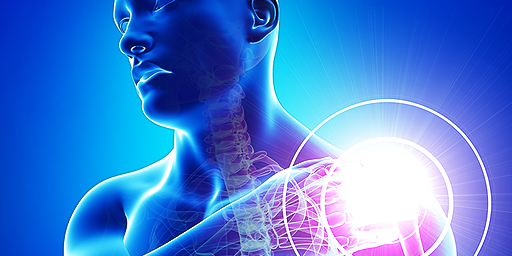Pain is your body’s way of telling you that something is wrong. But pain that lasts for weeks, months, or years is not typical. While acute pain (e.g. scraping your knee or hitting your head) is a normal sensation triggered in the nervous system to alert you to possible injury, chronic pain is different. Chronic pain persists. Pain signals keep firing in the nervous system for weeks, months, even years. Sometimes chronic pain is also described as pain that lasts longer than three months.
Anyone can get chronic pain. It’s more common in older adults, but it’s not a normal part of aging. Older adults are more likely to have long-term medical problems, such as diabetes or arthritis, which can lead to ongoing pain.
What are some of the difficulties cause by chronic pain?
Chronic pain can occur anywhere in your body. It can range from being mild and annoying to being so bad that it gets in the way of your daily activities. Common chronic pain complaints include:
- Feeling fatigued and needing to rest often
- Poor sleep or sleeplessness
- Withdrawal from social activities
- Low mood, hopelessness, irritability, fear, anxiety, and depression
- Finding it difficult to work or carrying out daily activities. In severe cases, disability can result.
What causes chronic pain?
The cause of chronic pain is not always clear. It may occur because brain chemicals that usually stop pain after you get better from an illness or injury are not working right, or nerve cells have become damaged.
Chronic pain can also occur without a known cause which is incredibly frustrating because the pain is real yet tests and examinations don’t provide a clear explanation about the pain. This leads some people to feel they are not being believed and that they are not being taken seriously.
What problems does chronic pain cause?
Apart from the pain itself, chronic pain can lead to a number of other problems, including:
- Fatigue and need for frequent rest.
- Poor sleep or sleeplessness.
- Withdrawal from social activities.
- Mood changes, such as hopelessness, fear, irritability, anxiety, stress and depression.
- Disability, which may include not being able to go to work or school or perform other daily activities.
- The lives of your family members, friends, or caregivers can also be affected.
Whether your chronic pain develops after an injury or illness or on its own, the result is often the same: a cycle of sleeplessness, inactivity, irritability, depression, and more pain.
Who to see to manage chronic pain
If your chronic pain is moderate to severe and is constant, or if treatment does not control the pain, you may need to see a specialist, such as one or more of the following:
- Pain management specialist, a doctor who specializes in treating chronic pain
- Physiatrist, a doctor who specializes in physical medicine and rehabilitation
- Physiotherapist, someone who evaluates physical problems and injuries and then provides education and treatment
- Internist, a doctor who specializes in the care of adults
- Neurologist, a doctor who specializes in treating the brain, spinal cord, and nervous system
- Anesthesiologist, a doctor who specializes in using pain-blocking techniques and medicines
- Psychiatrist, psychologist, or mental health counsellor, all of whom specialize in treating mental health and behaviour issues
- Orthopedic surgeon, a doctor who specializes in bone, muscle, and joint surgery
- Rheumatologist, a doctor who specializes in treating autoimmune diseases and problems in the joints
- Chiropractor, someone who specializes in treating problems that affect the alignment of muscles and bones
Treatment Options
You may always have some pain but the good news is that in most case chronic pain can be managed so that you can get on with your life without being held back.
There are many treatment options which can provide relief and healing to chronic pain and depression, including:
- Self-help(for mild pain). Exercising and getting enough sleep may help reduce chronic pain.
- Counselling.Counselling can help change patterns in pessimistic thinking and teach coping skills for symptoms
- Stress-management skillsincluding exercise, muscle relaxation, meditation, positive thinking, etc.
- Medication.Standard analgesics and antidepressant medications may be prescribed to help combat symptoms. For extreme pain, opioids may be prescribed.
- Peer support.Support groups for chronic pain, mental illness, or both can provide both emotional support and psychoeducation. Some of these groups are online if you can’t find one in your area.
- Inpatient or outpatient pain programs.More intensive programs can provide immediate and long-term support when depression and/or chronic pain is severe. These programs typically provide onsite medical support, individual and group therapy, and psycho-education for reducing stress and pain.
The Take Home Message
There is so much you can do while living with chronic pain. Getting good advice and support at an early stage is critical.
Learn More
- Canadian Pain Coalition. www.canadianpaincoalition.ca
- Canadian Physiotherapy Association. www.physiotherapy.ca
- Arthritis Society (Canada). www.arthritis.ca
- People in Pain Network (Peer Support Resources). https://www.pipain.com/
- Chronic Pain Association of Canada. http://chronicpaincanada.com/
- Canadian Pain Society. https://www.canadianpainsociety.ca/
Note: The contents on Avail such as text, graphics, images, and information is not intended to be a substitute for professional medical advice, diagnosis, or treatment. Always seek the advice of your physician or other qualified health provider with any questions you may have regarding a medical condition. Never disregard professional medical advice or delay in seeking it because of something you have read on this or any other website.













